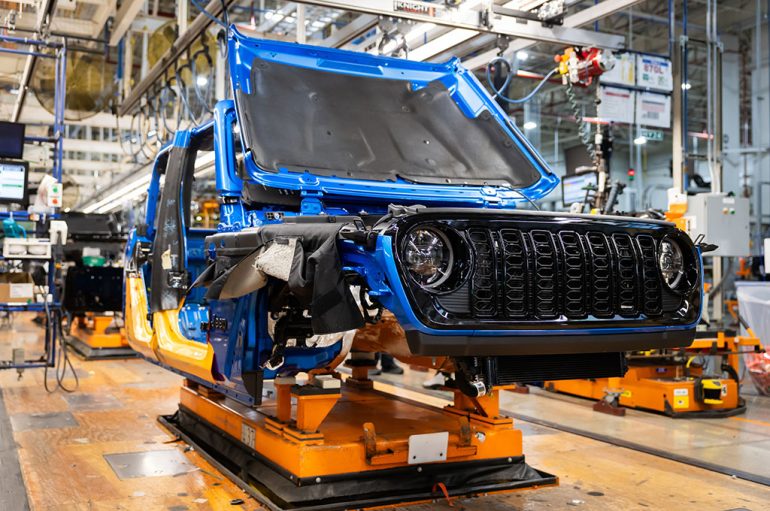Made in USA Controversy

Using the red, white, and blue to sell cars isn’t a new strategy, but Stellantis recently found out that the stars and stripes can get tangled up in regulatory red tape. Stellantis—parent company to brands like Dodge, Jeep, and Ram—has hit a bit of a roadblock with their recent patriotic-themed advertising campaigns. Groups like Truth in Advertising (TINA.org) are raising eyebrows at the company’s bold “American made” claims, which seem shaky under closer inspection.
Ad Tactics
Each Stellantis brand had its way of waving the American flag. Dodge, for example, promoted its Durango SUV with the slogan “American born. American made.” Jeep didn’t stray from its all-American image, dubbing itself “America’s most patriotic brand” and showcasing the Wrangler in its ads. Ram pushed the envelope further, declaring that its Ram 1500 pickup is made “from the ground up in America.” Despite their appeal, these advertisements have since been quietly removed from official channels, although traces remain on social media.
Regulatory Challenges
According to the standards set by the Federal Trade Commission (FTC), to truthfully claim a product is “Made in USA,” nearly all parts and labor must originate domestically, with minimal exceptions. The ads spotlighting vehicles from Stellantis fall short of these requirements, much to the chagrin of watchdog groups and informed consumers.
Parts Breakdown
-
Jeep Wrangler – 68% U.S. content
-
Dodge Durango – 73% U.S. content
-
Ram 1500 Pickup – 55% U.S. content
Although these percentages reflect a significant contribution of U.S. content, they are not enough to satisfy the FTC’s criteria. The remaining portions of these vehicles, such as engines and crucial components, are sourced from other countries like Mexico, Italy, and Japan. This kind of international collaboration casts doubt over claims of being fundamentally “American.”
Consumer Sentiment
The timeline for when, or if, Stellantis will reissue these ads remains uncertain. With their headquarters in Auburn Hills, Michigan, Stellantis has long positioned itself as an American icon of the auto industry. This misstep in advertising not only highlights the intricacies of compliance but also underscores a significant shift in consumer expectations around domestic production—all amid the backdrop of economic nationalism.
While this isn’t the first time an automaker’s marketing has raised questions, Stellantis’ recent controversy is a sharp reminder of the importance of authenticity in advertising. In today’s market, people are making buying decisions that reflect their values, placing even more scrutiny on claims of national origin.
Organizations like CarScoops and Truth in Advertising aim to ensure transparency, emphasizing that “Made in USA” is a claim that doesn’t just need good storytelling—it demands solid facts and figures.
Market Shifts Crush Value
S90 Bids Farewell
Musk Triggers NHTSA Cuts
Title: Tariffs Hit Audi Q5
Tesla Cybertruck Value